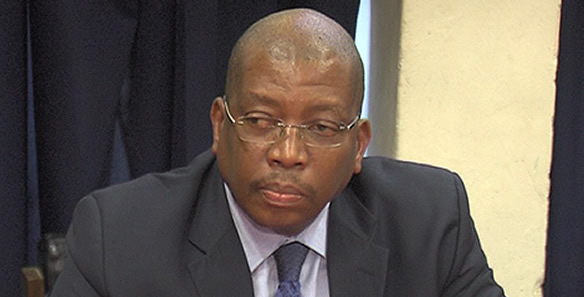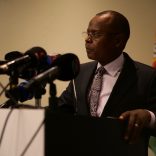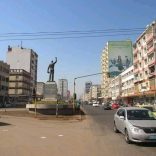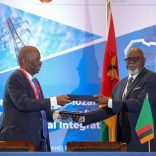Mozambique: Cyclone Chido destroyed 337 schools in Cabo Delgado in December
Mozambique: Quality of higher education poor, says minister

O País / Jorge Nhambiu, Minister of Science. Technology and Higher Education
Mozambique’s Minister of Science. Technology and Higher Education, Jorge Nhambiu, has admitted that the quality of the country’s higher education is poor, reports Tuesday’s issue of the independent daily “O Pais”.
Speaking in Maputo to staff and students of the Technical University of Mozambique (UDM), one of the country’s many private universities, at a meeting on the challenges of higher education in the construction of peace and democracy, Nhambiu pointed to the low level of qualification of the teaching staff.
In the country’s 52 institutions of higher education there are currently 189,135 students and 4,935 teaching staff.
But only 14 per cent of the staff have doctorates, even though the regulations on institutions of higher education demand that at least half the full time teaching staff must have doctorates. Given the large number of part time teachers, this meant, Nhambiu said, that at least 16.6 per cent of the teachers in all the universities “must be doctors. Unfortunately, we are not complying with this requirement”.
A further 183 university teachers are being trained to acquire Ph.Ds, but even this, he said, “is not enough to respond to the needs”.
He was also worried that the universities are not producing “good citizens”. Nhambiu recalled that “two years ago, when I was teaching, I challenged my engineering students to sing a stanza from the national anthem before the start of an exam. They all complained. And if we ask some people with degrees what are the symbols of the nation, they will also not be able to answer”.
Nhambiu believed that more diversified curricula are needed which teach students to be citizens. That would include “teaching on themes such as human rights, which is crucial for bringing higher education institutions closer to communities”.
He believed that the institutions should “provide training that is committed to the building of peace, to the values of democracy and national unity, and to fighting prejudice, division and all forms of violence”.
Perhaps most worrying of all was that some of the 52 universities and similar institutions should not be open at all. Nhambiu said he had visited 76 headquarters and provincial delegations of the institutions “and we could see that 10 of them (which he did not name) do not have the conditions to continue operating”.












Leave a Reply
Be the First to Comment!
You must be logged in to post a comment.
You must be logged in to post a comment.